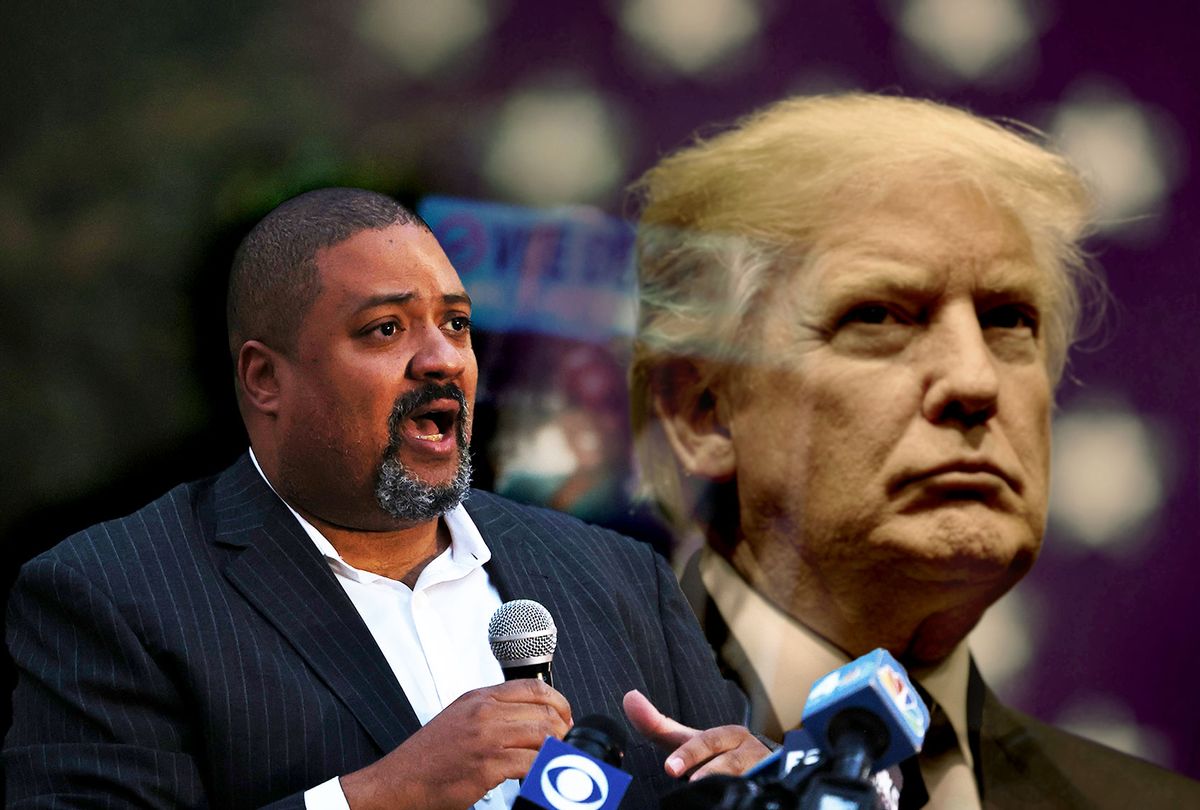The Manhattan district attorney's office informed former President Donald Trump's team that he could face criminal charges stemming from his role in the hush money payment to Stormy Daniels, according to multiple reports.
Prosecutors offered Trump a chance to testify before the grand jury hearing evidence in the case in the "strongest indication yet that prosecutors are nearing an indictment of the former president," The New York Times reported on Thursday, adding that such offers "almost always indicate an indictment is close."
Trump is unlikely to testify but his lawyers could try to meet with prosecutors in an effort to fend off criminal charges, the report added.
An indictment in the case would mark the first-ever indictment of a former president and could upend Trump's third presidential bid.
The Manhattan investigation, which has lasted nearly five years, now focuses on the $130,000 hush money payment that former Trump fixer Michael Cohen paid to Stormy Daniels during the 2016 campaign to cover up her alleged affair with Trump. Cohen, who later pleaded guilty to federal campaign finance charges over the scheme, testified that Trump reimbursed him for the payment.
Trump has repeatedly called the investigation a politically motivated "witch hunt" and claimed that District Attorney Alvin Bragg, who is Black, is "racist" against him.
"I did absolutely nothing wrong," Trump claimed in a lengthy rant on Truth Social, denying that he had an affair with Daniels and claiming the probe was part of a larger conspiracy to bring him down.
A spokesperson for Trump called the potential indictment an "embarrassment" to prosecutors and New York City.
"The Manhattan District Attorney's threat to indict President Trump is simply insane," the spokesperson told the Times.
The report cautioned that Bragg may still decide against indicting the former president, but former federal prosecutor Glenn Kirschner noted that inviting the target of an investigation to appear before a grand jury is "almost always the last investigative step" before an indictment.
Former U.S. Attorney Harry Litman tweeted that the report signals that an indictment is "imminent."
"This is imminent as in next few weeks. As in Beware the Ides of March," he wrote.
Fellow former U.S. Attorney Barb McQuade agreed that the report suggests that the prosecutors are "at the end of the investigation."
"In New York law requires that the prosecutors at least invite the target in to testify, but they're not going to invite that person in until you are at the very end because before you interview, someone who's the target of an investigation, you want to be as informed as you can be about that investigation," she explained on MSNBC.
An indictment does not guarantee a conviction, however. Prosecutors could charge Trump with a misdemeanor in connection to the Trump Organization falsifying records to write off the payment as a legal expense to Cohen. But the charge could become a felony if prosecutors show an "intent to commit or conceal a second crime," which in this case would be a violation of New York election law banning unlawful campaign expenditures to evade contribution limits. If convicted of a felony, Trump could face up to four years in prison.
"It should be obvious to you why this crime might be a challenge to prove. Trump's defense will likely be that the $130,000 payment to Daniels was made to avoid embarrassment and preserve his marriage, not in order to evade campaign finance limits," tweeted former federal prosecutor Renato Mariotti.
Prosecutors could also paint Cohen, a convicted felon, as a disgruntled former employee who admitted to lying in the past.
Want a daily wrap-up of all the news and commentary Salon has to offer? Subscribe to our morning newsletter, Crash Course.
But former acting Solicitor General Neal Katyal, a professor at Georgetown University Law Center, said he believes "it's not going to be a very difficult thing to prove."
"I think that the evidence here so far looks pretty damning. And I think if I'm Donald Trump at this point, you know, I'd be pretty worried because this is a hard thing, I think, for him to get out of," he told MSNBC.
McQuade also pushed back on the idea that Trump's defense will be that the purpose of the payment was to protect his wife and not his presidential ambitions.
"I think he can believe that to be true, but it's not a valid legal defense," she told the network, adding that if campaign expenditures were concealed, "then that's a crime regardless of why he did it."
Former federal prosecutor Andrew Weissmann, a professor at New York University Law School, said that the Manhattan probe was "always the sleeper case" compared to the Georgia probe into his efforts to overturn his election loss and the Justice Department investigations into his role in the Jan. 6 Capitol attack and classified documents found at Mar-a-Lago.
"The NY criminal case against Trump may not be the most serious or straightforward legally… but it is presidential pardon-proof," he tweeted, "and brought in a state where the governor and legislature are not trying to interfere with the case."



Shares